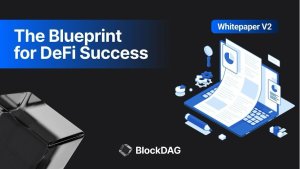Ripple inspires Australia’s upcoming crypto regulation
The final report was submitted to legislators on October 20 and highlighted Ripple’s proposals, from a principles-based regulation and a digital asset taxonomy consistent with the best practices found in the UK and Singapore.

The Australian government is set to launch the biggest reform in payments in the last 25 years, which will take cryptocurrencies and digital assets “out of the shadows”.
Treasurer Josh Frydenberg has said the country’s payment systems overhaul will “broaden the definition of services and products that can be regulated” with the aim of becoming a “world-leading” regulatory framework.
Risk-based approach to cryptocurrencies
Besides cryptocurrency payments, the government has plans to develop a licensing framework for digital asset exchanges as more than 800,000 Australians are said to own some form of crypto assets.
The Senate had set up a committee to research crypto regulations in March – Australia as a Technology and Financial Centre – and asked for feedback from blockchain specialists. Ripple Labs filed its submission on June 30.
The final report was submitted to legislators on October 20 and highlighted Ripple’s proposals, from a principles-based regulation and a digital asset taxonomy consistent with the best practices found in the UK and Singapore.
“Ripple proposed three principles upon which an Australian regulatory framework for digital assets should be founded. The regulatory framework should be technology-agnostic, and should not explicitly or otherwise endorse any particular technology. In practical terms, this means that financial services using digital assets as a solution should not be treated differently from financial services embedding legacy architectures, and there should be parity in the treatment of all technology;
“Given the dynamic nature of digital assets, prescriptive regulation risks obsolescence. Prescriptive regulation could also have the unintended consequence of hindering innovation. Therefore, we recommend the Committee consider a principles-based regulatory framework, which will guide market participants to regulatory and policy goals, without imposing an overly prescriptive and onerous process in doing so”, the report continued.
“The regulatory framework should use a risk-based approach to identify digital asset services that pose sufficient risk to warrant regulation, and where such risks are crucial to address. This is in order to build a simple, secure, and accessible digital assets ecosystem that will encourage investment into digital assets in Australia, while mitigating any potential risks.”
Follow the lead of the United Kingdom and Singapore
“Ripple noted that there is ‘no single or generally recognised definition of digital assets at present’, and submitted that these assets should not be solely defined relative to a specific technology (e.g., cryptography), but, for the purposes of regulation, should instead fall under a broader heading such as “digital assets”, and subsequently classified depending on the particular economic function and purpose they serve”.
“Ripple noted that this approach is consistent with that taken by the UK and Singapore, ‘which have issued classifications that do not depend on whether a business model uses distributed ledger technology or not’.
“It recommended that Australia adopt a digital asset taxonomy consistent with such global practices in order to provide ‘clarity to the legal character of digital assets in Australia’. It recommended that this taxonomy provide clear distinctions
between payment tokens, utility tokens, and security tokens, as follows:
Payments or Exchange tokens: to describe non-fiat native digital assets that are used as means of exchange and have no rights that may be enforced against any issuer;
Utility tokens: to describe those digital assets that create access rights for availing service or a network, usually offered through a blockchain platform; and
Security tokens: to describe tokens that create rights mirroring those associated with traditional securities like shares, debentures, security-based derivatives, and collective investment schemes.
Ripple, which has been quite busy with the SEC lawsuit, is trying to influence the regulatory framework for digital assets in many jurisdictions, including the United States, where the XRP-powered firm looks to limit the “SEC’s hostility” toward the space.
Blockchain industry applauds
Following the announcement that Australia is about to implement new regulation on payments and crypto, several figures within the blockchain space have come forward to comment and applaud the initiative.
“Governments around the world are waking up to the reality that cryptocurrencies have already become an entrenched part of the global payments environment – and one that is preferred over the legacy systems by a growing number of individuals. After the recent EU crypto regulation proposal, Australia has now announced its working on a similar document – and it is to be expected that other major jurisdictions will follow suit”, said Mikkel Morch, Executive Director & Risk Management at crypto/digital assets hedge fund ARK36.
“Importantly, the scope of the regulation outlined by the Australian Treasurer doesn’t seem to be overly restrictive. Clearly, then, the regulators recognise the immense economic and innovation potential of crypto and don’t want to stifle it. The push for CBDCs, on the other hand, suggests that financial regulators may want to use their own digital money systems to outcompete non-governmental ones, including cryptocurrencies. This competition will be an interesting dynamic to watch in the next few years but one thing is certain – major governments are now betting on the idea that crypto is the future of money”, Morch added.
Edan Yago, the lead contributor to the Bitcoin DeFi protocol Sovryn, commented: “It is a question of time before all payments and financial transactions are digitised on public ledgers. This shift will unlock huge opportunities for cost reduction, innovation and financial inclusivity. At the same time, it will relegate the idea of local payments systems and local regulation to a thing of the past. The future of money and finance is borderless and digital.”
Ruud Feltkamp, CEO of cloud-based automated crypto trading bot Cryptohopper, said: “(Reasonable) regulation is good for the market, and it’s positive to see Australia speak out. Governments must understand that crypto will be impossible to stop, and you will miss the boat as a country if you do not cooperate. Therefore, if you strongly oppose crypto, there is a chance that the large crypto companies will relocate elsewhere. And payment traffic will soon go through other countries. I hope nations understand that now is the time to do something about the status quo. That gives you the potential to profile yourself as a new financial hub, with all the associated benefits.”









